Obama Gets a Break on Race Issue
In Barack Obama’s presidential candidacy, the fact that he is African-American has seemed to be an obstacle that could be overcome with a good campaign, a few breaks and the issues turning his way. That's what is happening now.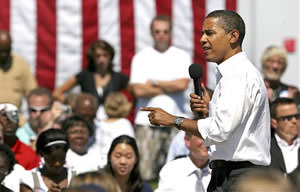
In Barack Obama’s presidential candidacy, the fact that he is African-American has seemed to be an obstacle that could be overcome with a good campaign, a few breaks and the issues turning his way.
That’s what is happening now.
The growing ailments of Wall Street have changed the campaign. The culture wars and their messenger, Gov. Sarah Palin, seem irrelevant. Our worries are intensely personal: loss of jobs and retirement savings, home foreclosures, inflation, bewildering collapses of old companies.
In addition, there is the maddening sight of discredited investment bank executives scrambling for positions to manage the federal government’s $700-billion Wall Street rescue—and of lobbyists trying to game the program to benefit their firms.
With the election less than two months away, the media are paying increased attention to the subject of race, especially in interviews with Obama by John Harwood on CNBC and Steve Kroft on “60 Minutes.” Surveys for the Associated Press, Yahoo, ABC News and USA Today took especially deep looks at election-year attitudes toward race.
First of all, polling indicates that the failing economy is helping Obama. CNN reported that men are now narrowly supporting him, as are seniors. Obama led by 10 percentage points over Republican Sen. John McCain when it came to who was seen as being able to handle the economy better. Overall, he led McCain 51 percent to 46 percent.
Obama is now centering his campaign on the economy. “No matter what solution we finally decide on this week, it is absolutely imperative that we get to work immediately on reforming the broken politics and the broken government that allowed this crisis to happen in the first place,” he told a crowd of about 6,000 in Green Bay, Wis., a state where Pollster.com said Obama is slightly ahead of McCain at 48 percent to 44.3 percent.
Just as the Wall Street collapse was deepening, two surveys were released examining Americans’ attitudes toward race in the coming election.
One was for the Associated Press and Yahoo in partnership with Stanford University, conducted by Knowledge Networks. A total of 2,227 adults were polled, 1,728 of them registered voters, including 1,083 Democrats and 798 Republicans. It was an unusual survey in that some of the questions were framed in a way designed to get around the tendency of many to lie to pollsters when race is involved.
The AP story said, “Deep-seated racial misgivings could cost Barack Obama the White House if the election is close.” It went on to say, “More than a third of all white Democrats and independents — voters Obama can’t win the White House without — agreed with at least one negative adjective about blacks … and they are significantly less likely to vote for Obama than those who don’t have such views.”
Perhaps it’s because I’m a glass-half-full kind of person, but I didn’t quite see it that way after reading the poll. A total of 49 percent of the whites surveyed felt sympathy toward blacks, while 37 percent said they rarely felt that emotion. Most whites—67 percent — felt admiration for African-Americans in varying degrees while 23 percent said they rarely felt that way. Most whites chose complimentary descriptions such as friendly, determined to succeed and intelligent to describe African-Americans; the minority among those polled picked negative words such as lazy.
What I drew from it was evidence of a reservoir of goodwill among whites that, while not overwhelming, is big enough to give Obama a victory.
The ABC News/USA Today/Columbia University poll found “sharp racial divides in this country” but also discovered “avenues for progress.”
Just 36 percent of whites supported Obama over McCain. But the survey noted that just 41 percent of whites voted for John Kerry in his losing 2004 election against George W. Bush, who got 58 percent. Both George H.W. Bush in 1988 and Ronald Reagan in both of his elections received similarly large white majorities.
Asked on “60 Minutes” about whites’ potential reluctance to vote for him, Obama said: “We haven’t had an African-American nominee, much less president, before. So, you know, this is something new for America. But what I know is this: After the toughest primary in history, against one of the best fields in history, I emerged as the nominee. Going up against a very formidable Republican machine, and having been subject to constant attack and millions of dollars spent trying to scare people over the last two months, I’m still tied or in the lead with John McCain.
“That tells me that the American people are good. … The bottom line is am I viewed as somebody who’s gonna be a champion for the guy who’s waking up every day, working hard for a paycheck? And I’m confident that if they think I can help them, that I’ve got a shot at getting their vote. And it may take a little more work on my part. But I don’t mind working harder than the other guy.”
Just as was the case in the primaries, Obama does not need a majority of white votes to win. He just needs a substantial minority, and he needs it in the key states. His response to the financial collapse and his performance in the debates beginning Friday night will determine whether he succeeds.
Your support matters…Independent journalism is under threat and overshadowed by heavily funded mainstream media.
You can help level the playing field. Become a member.
Your tax-deductible contribution keeps us digging beneath the headlines to give you thought-provoking, investigative reporting and analysis that unearths what's really happening- without compromise.
Give today to support our courageous, independent journalists.


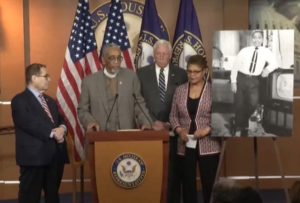

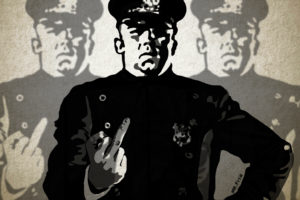
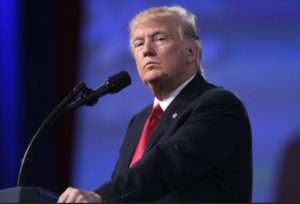
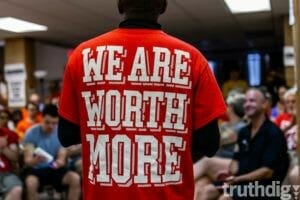


You need to be a supporter to comment.
There are currently no responses to this article.
Be the first to respond.